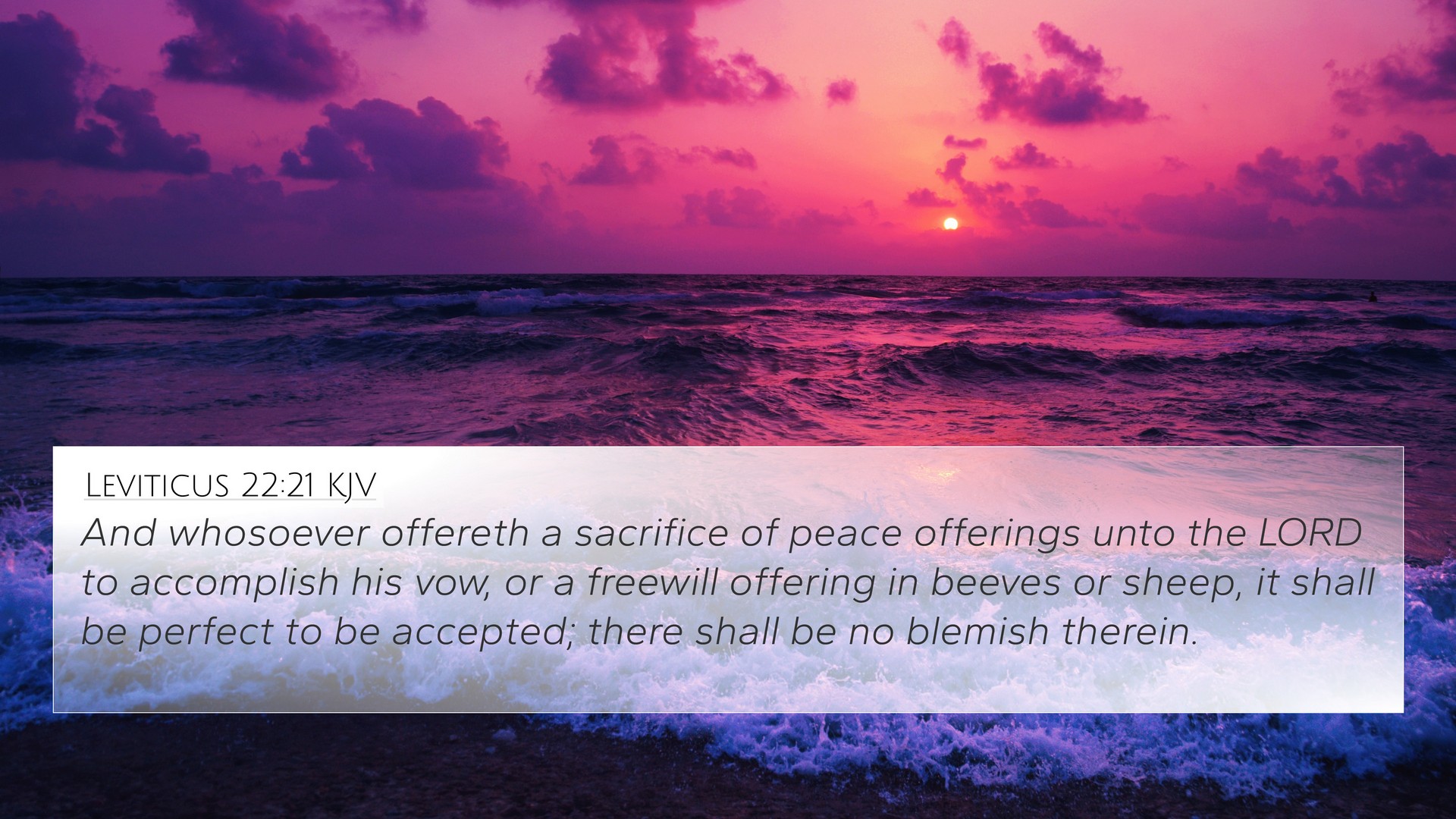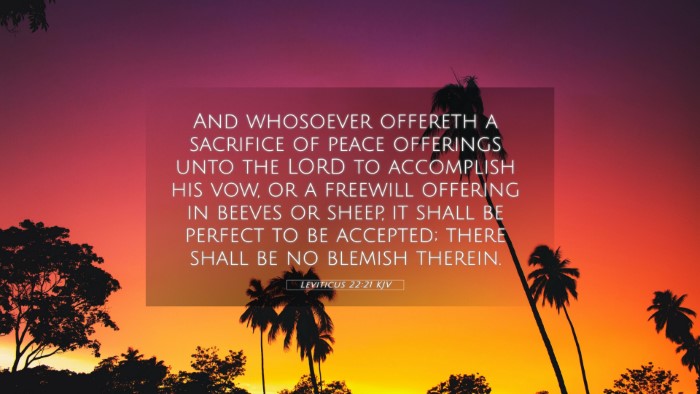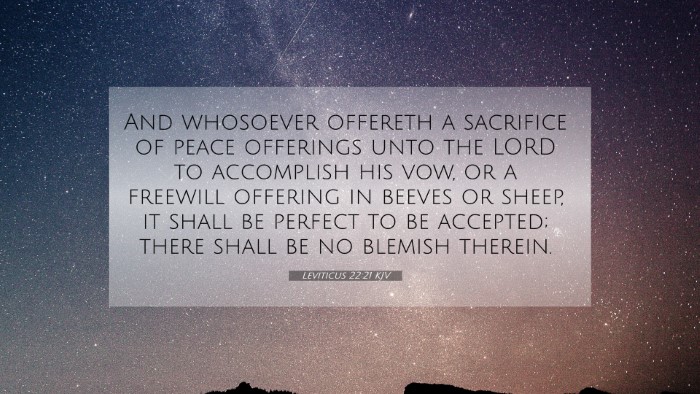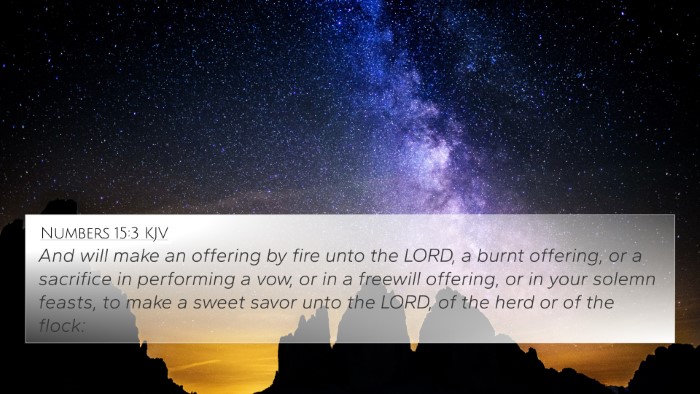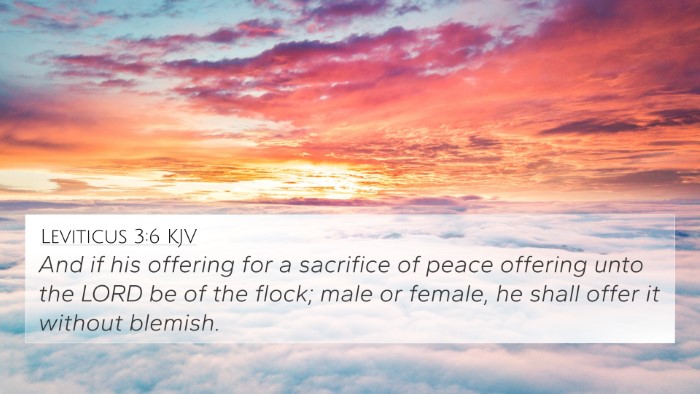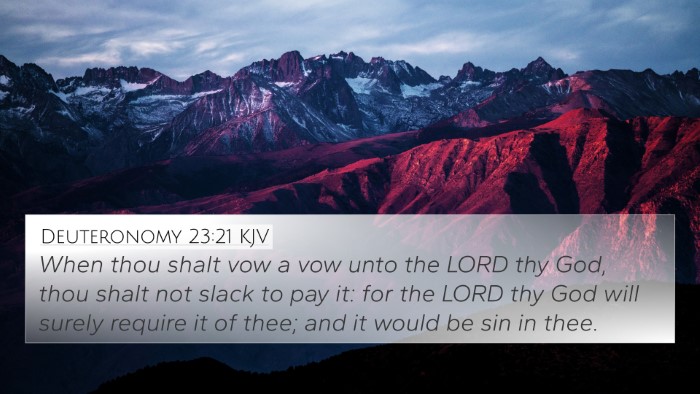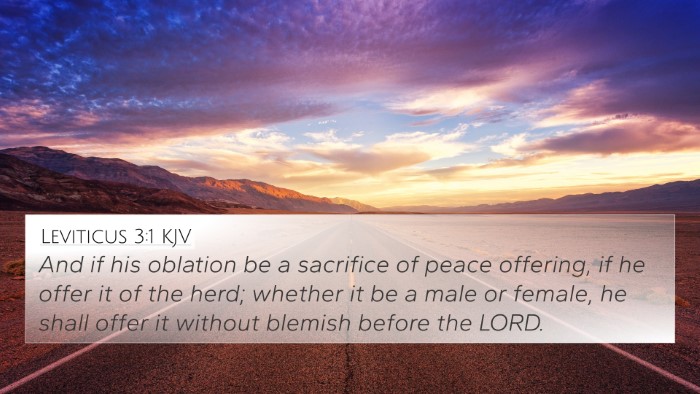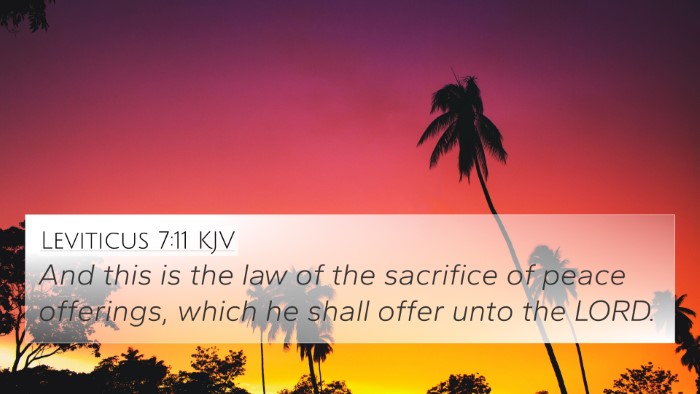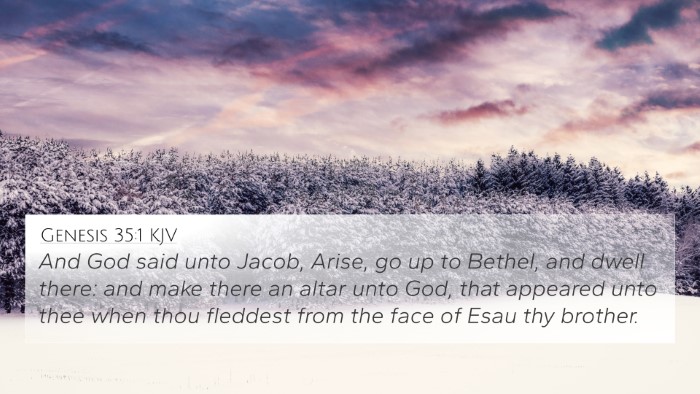Interpretation of Leviticus 22:21
Verse Reference: Leviticus 22:21
“And whosoever offereth a sacrifice of peace offerings unto the LORD to accomplish his vow, or for a freewill offering, be it of oxen or sheep, it shall be perfect to be accepted; there shall be no blemish therein.”
Summary of Meaning
The verse outlines the requirements for bringing a peace offering to the Lord, emphasizing the importance of offering a sacrifice that is without blemish. This reflects broader themes of purity and holiness that are woven throughout the book of Leviticus and the entire Old Testament.
Contextual Understanding
This verse falls within a passage that discusses the regulations concerning offerings, a critical aspect of worship in ancient Israel. The peace offering is significant as it represents communion with God and fellowship with the community.
Insights from Commentaries
-
Matthew Henry's Commentary: Henry notes that the phrase "no blemish therein" not only refers to physical defects of the animal but symbolizes the necessity for spiritual purity in the offerings we present to God.
-
Adam Clarke's Commentary: Clarke elaborates that the peace offering symbolizes joy and gratitude, where an unblemished offering reflects the offeror's sincere devotion and respect for God's holiness.
-
Albert Barnes' Notes: Barnes highlights the dual purpose of peace offerings: they can be fulfilled as vows or as spontaneous acts of generosity towards God, underlining God’s delight in willing offerings.
Thematic Bible Verse Connections
This verse connects thematically with various scriptures that address offerings and sacrifices:
- Exodus 12:5 - Requirements for the Passover lamb, emphasizing the need for perfection in offerings.
- 1 Peter 1:19 - Christ is referred to as a lamb without blemish, connecting the Old Testament sacrificial system with New Testament theology.
- Malachi 1:7-8 - A warning against offering blemished sacrifices, reinforcing the covenant requirement of holiness.
- Hebrews 9:14 - The concept of an unblemished sacrifice relates to the redemptive work of Christ.
- Romans 12:1 - Encourages believers to offer themselves as living sacrifices, highlighting the need for purity in our lives.
- Leviticus 1:3 - Additional laws on burnt offerings, continuing themes of the requirements for acceptable sacrifices.
- Genesis 4:4 - Abel’s offering, which was accepted because it was of the firstborn and fat portions, representing the ideal of giving one’s best to God.
Bible Verse Cross-References
Understanding Leviticus 22:21 can be enhanced through the following cross-references:
- Leviticus 1:10 - Discusses the offerings of cattle, emphasizing the physical attributes of acceptable offerings.
- Deuteronomy 15:21 - Stresses the importance of quality in sacrificial offerings, aligning with the character of offerings discussed in Leviticus.
- Hebrews 13:15-16 - Encourages believers to offer a sacrifice of praise, connecting to communal and heartfelt offerings.
- Matthew 5:24 - Jesus emphasizes reconciliation before offering to God, linking our relationships with the requirement of purity in sacrifice.
Conclusion
Leviticus 22:21 serves as a pivotal verse that establishes not only the technical requirements for the peace offerings but also the underlying principle that all offerings to God must reflect His holiness. By examining this verse through a combination of commentaries and cross-references, it becomes evident that both the intention behind the offering and its quality are of utmost importance in our relationship with God.
Further Study Suggestions
Utilizing tools for Bible cross-referencing can deepen your understanding of verses like Leviticus 22:21:
- Explore a Bible concordance to locate similar themes across different texts.
- Consider a Bible cross-reference guide for systematic study of offerings and sacrifices in both the Old and New Testaments.
- Engage in cross-reference Bible study methods to connect different scriptures and enhance your interpretive skills.
